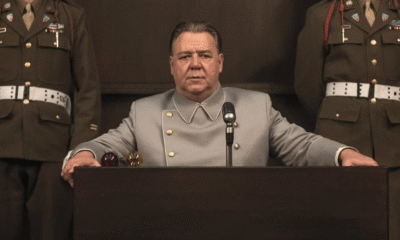Tech Plunge
Actor pursues “Right to be Forgotten” after life adversely affected by mistake
Ashutosh Kaushik, who won the 5th season of reality show MTV Roadies in 2007 and Big Boss, is fighting for the “Right to be Forgotten”. He said that fame came at a cost when he was caught drink-driving in 2008. The incident made headlines because of his celebrity status, costing him his personal and professional life.
Kaushik said that during that time he was 27 and inexperienced and made a mistake. He was also punished. “But I am 42 now, and I am still paying the price,” the actor told BBC. “Now the first impression people form of me is bad. I have lost out on work, I have been rejected for marriage several times, and every time I move home, my new neighbors look at me strangely.”
Arpita, his wife, said her family has been prejudiced against her husband from the beginning because of the videos they saw on the internet. “My relatives were very concerned about his past. My brother refused to accept our marriage and still doesn’t talk to me. But I feel that everyone makes mistakes in life, so why should my husband be penalized for a lifetime?”
Kaushik, who has done roles in Bollywood movies such as Kismat Love Paisa Dilli and Zila Ghaziabad, highlighted that when a court sentences an accused, it’s for a term, so the digital punishment should also have a time limit, a cut-off date. He revealed that he has approached several news websites and channels, over the years, requested them to remove the articles, photos and videos, but most of them remain. The actor has also written to the information and broadcasting ministry and Google but has not received any response.
In his petition to the court, Kaushik has stated that the articles have caused him deep agony and psychological pain. He wants the court to direct the Indian government, Press Council of India and Google to remove the content from various online platforms.
However, there is no concept of “the right to be forgotten” in Indian law. It is covered in Europe as the “right to erasure” under the General Data Protection Regulation (GDPR), which governs how personal data must be collected, processed, and erased. Article 17 of the GDPR states that the data subject shall have the right to obtain from the controller the erasure of personal data concerning him or her without undue delay and the controller shall have the obligation to erase personal data without undue delay” if one of a number of conditions applies.
The Indian Government is working on its own Personal Data Protection Bill (PDPB). It contains provisions related to the right to be forgotten. A spokesperson for Google said their search generally reflects what’s on the web, so if people want content removed from the web, they should start by contacting the independent sites hosting the content.
Prasanto K Roy, a technology expert, pointed out that there is no easy way for Indian citizens to exercise a right to be forgotten. “The internet is a huge landscape with Google, the dominant gateway, and Microsoft’s Bing. Then there’s Wikipedia, Medium, all other intermediary platforms such as Facebook and Twitter, and tens of thousands of blogs.”
Also Read: Data Protection Bill to include hardware regulation for the first time: Kazim Rizvi
Roy highlighted that he had spoken to Google, years ago, informally for a woman who was repeatedly slandered and linked to husbands she didn’t have. “But they weren’t very helpful. In another case of a law enforcement officer whose name needed to be removed, informal requests didn’t work but official channels did.” He said Google can easily block certain URLs or even search phrases which it does in the EU, mandated by law.
“But in India, the internet giant fears an explosion of such takedown demands, given how fragile and sensitive Indian social media is and how easily people take offence.”





































